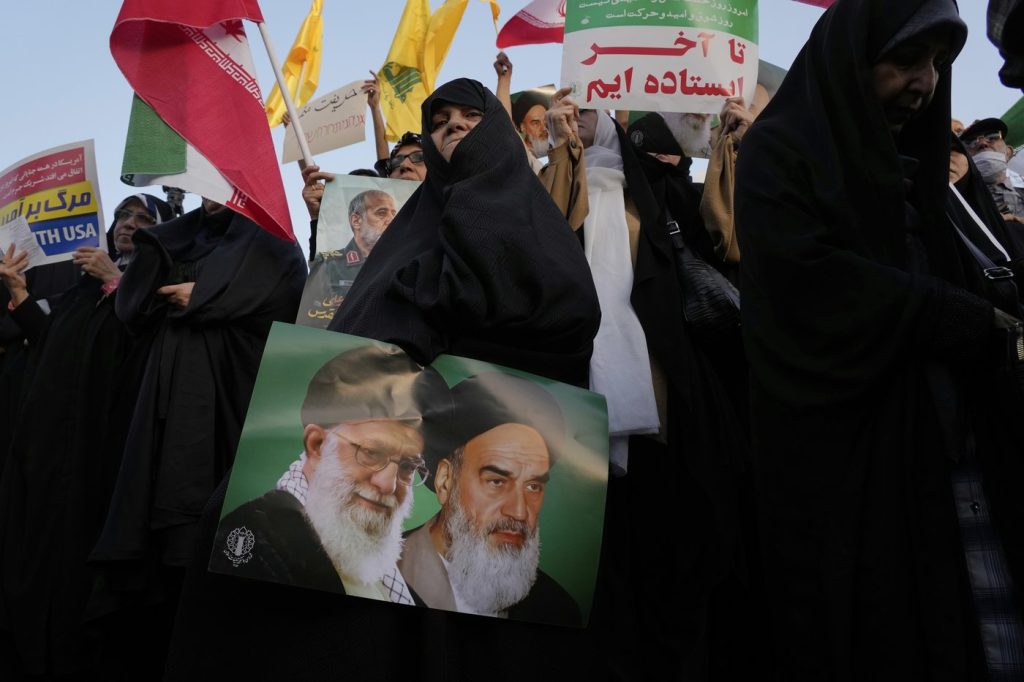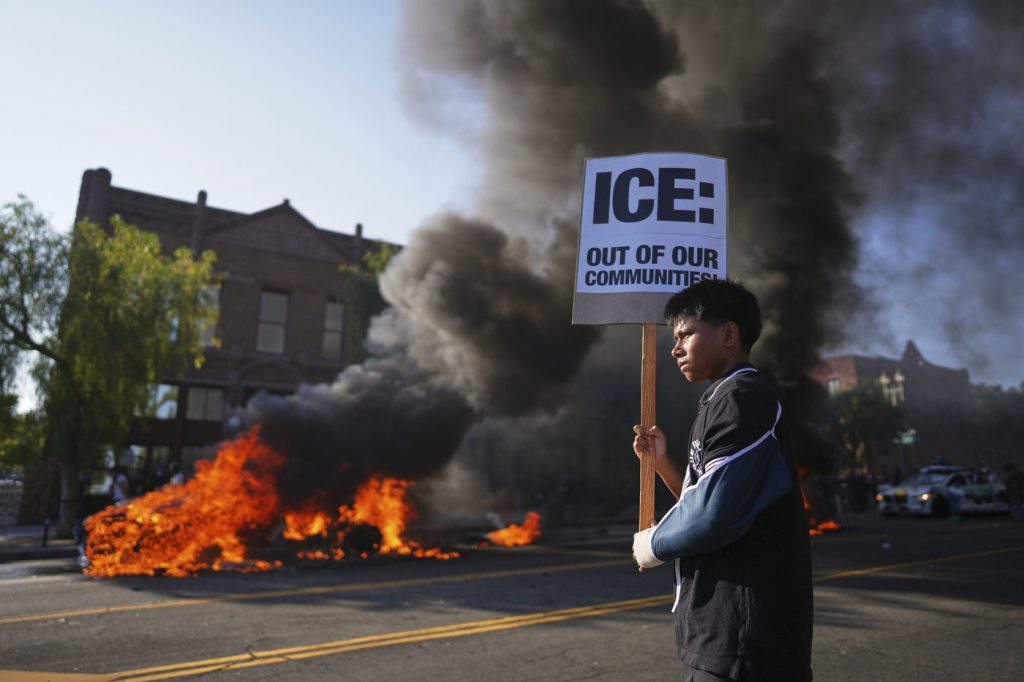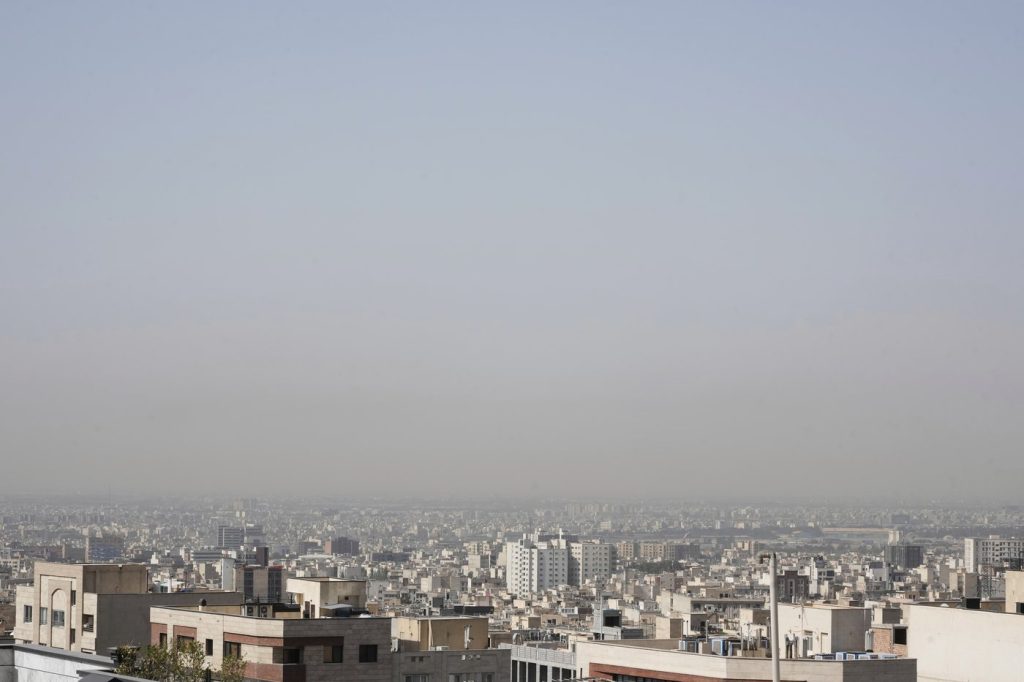DUBAI, United Arab Emirates (AP) - The bombing in Iran's recent 12-day conflict with Israel has subsided, leaving the Iranian regime, particularly 86-year-old Supreme Leader Ayatollah Ali Khamenei, in a precarious position. Following extensive Israeli airstrikes, significant leadership within Iran's Revolutionary Guard has been decimated, and its ballistic missile arsenal has suffered severe depletion. Israeli and American military action has reportedly impacted Iran's nuclear program, although the extent of such damage remains contested.
During the conflict, Khamenei retreated into deep isolation, making only two public video appearances while the Israeli military operated with relative impunity over Iranian airspace. Iran's so-called "Axis of Resistance," a coalition of allied nations and militias, has also suffered considerable blows since Hamas' attack on October 7, 2023. Tehran anticipated support from international allies like China and Russia, but such backing has not come forth. Domestically, Iran grapples with longstanding issues, such as a faltering economy crippled by sanctions, corruption, and mismanagement.
According to the Eurasia Group's analysis, Iran's leadership has faced a serious setback and is likely keen on keeping the ceasefire intact, which would provide some much-needed breathing room for internal reconstruction and security. One striking revelation from Israel's campaign has been the depth of its intelligence infiltration within Iran, particularly regarding its rapid targeting of military commanders and nuclear scientists.
In the wake of the conflict, Khamenei's primary challenge may be to root out any perceived disloyalty within the ranks of the regime. Analysts suggest that a purge of untrustworthy elements is imminent, but implementing such actions could prove complicated due to heightened distrust. Rebuilding the military, especially the Revolutionary Guard, presents its own obstacles; however, the Guard still boasts a substantial number of qualified officers.
On the civilian front, Foreign Minister Abbas Araghchi has emerged as a significant figure, acting almost like a de facto prime minister by issuing statements regarding the ceasefire while others have remained silent. Khamenei is now compelled to reevaluate a security policy developed over the last two decades, which has recently shown weakness. The "Axis of Resistance" strategy was designed as a defensive mechanism to protect Iranian territory but has been rendered ineffective by the recent military engagement.
Amidst these challenges, a debate is brewing within the Iranian government regarding the pursuit of nuclear weapons. Historically, Iran has claimed its nuclear program is peaceful, but it remains the only non-nuclear state to have enriched uranium up to 60%, a margin close to weapons-grade levels. Observers speculate that Khamenei, historically cautious about fully committing to a nuclear armament approach to avoid war, might now reconsider in light of the recent confrontations. Such a shift could have significant implications, despite the extensive damage already inflicted on Iran's existing nuclear infrastructure that would necessitate years of rebuilding in secrecy.
On another front, Khamenei could opt to re-engage in negotiations with the United States to seek sanctions relief. U.S. Middle East envoy Steve Witkoff has expressed optimism regarding the potential for future talks, suggesting that dialogues are already underway and expressing hope for a long-term peace agreement that could stabilize Iran.
Domestically, the regime faces multiple challenges. The Iranian economy continues to deteriorate under the pressure of international sanctions and mismanagement. Rolling blackouts have become common due to the strain on the country’s power grid, causing significant disruptions. The war further froze financial systems like the stock market and currency exchanges, postponing the decline of Iran's already weakened rial currency.
The stark economic situation has historically incited protests, culminating in unrest during previous government actions like the 2019 gas price hikes and the fallout from the protests following the death of Mahsa Amini in 2022. As the population returns from wartime displacement, the potential for renewed protests looms, especially among women resisting dress code enforcement. Nobel laureate Narges Mohammadi has condemned the Iranian regime's systemic violations of rights, advocating for a ceasefire while acknowledging that the path to democracy cannot emerge from warfare.
Despite surviving the recent strife, the question of Khamenei's succession remains pressing. The longstanding perception of a cleric-dominated government may give way to increased military influence in governance, suggesting an evolution towards a militarized Islamic Republic. Analysts propose that the outcome of the ongoing conflict could accelerate this shift, with military officials potentially occupying central power roles in the governance of Iran.












